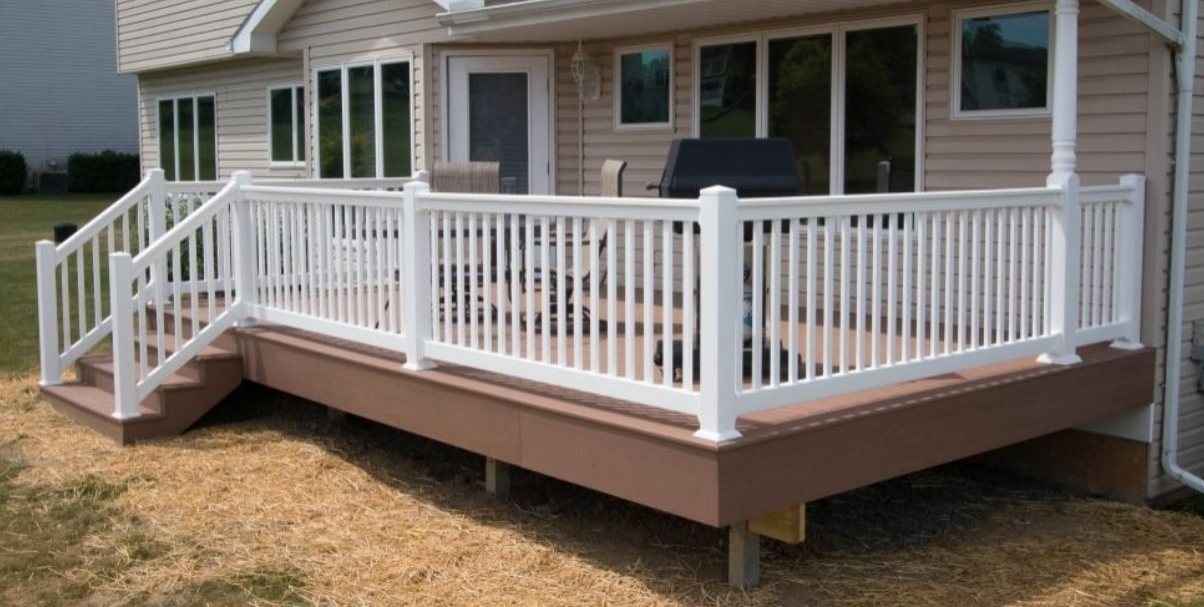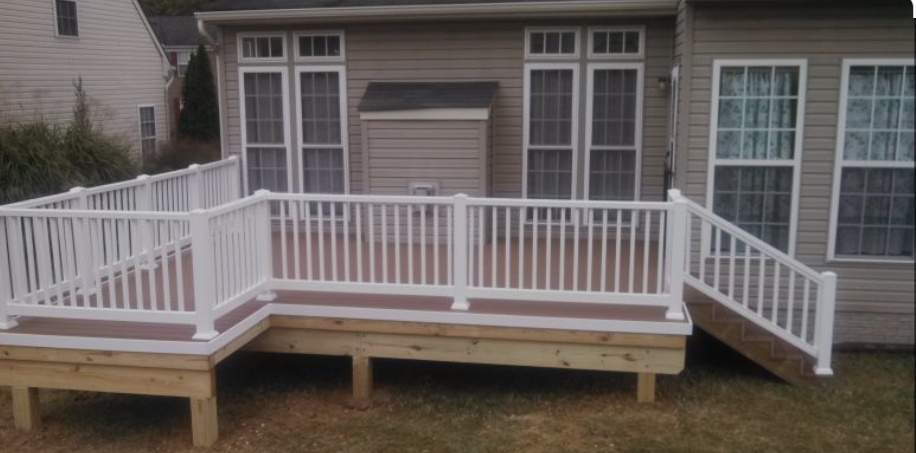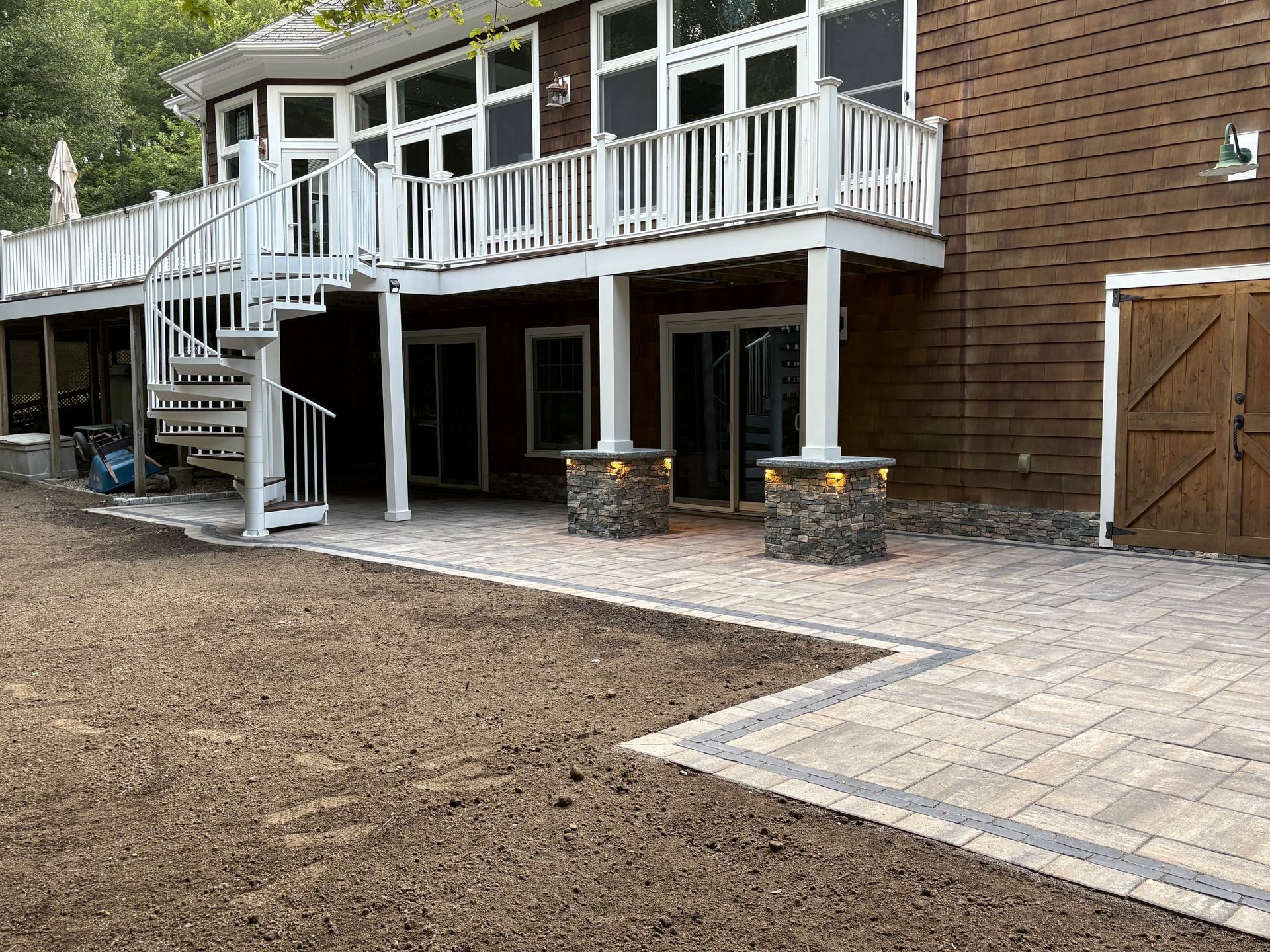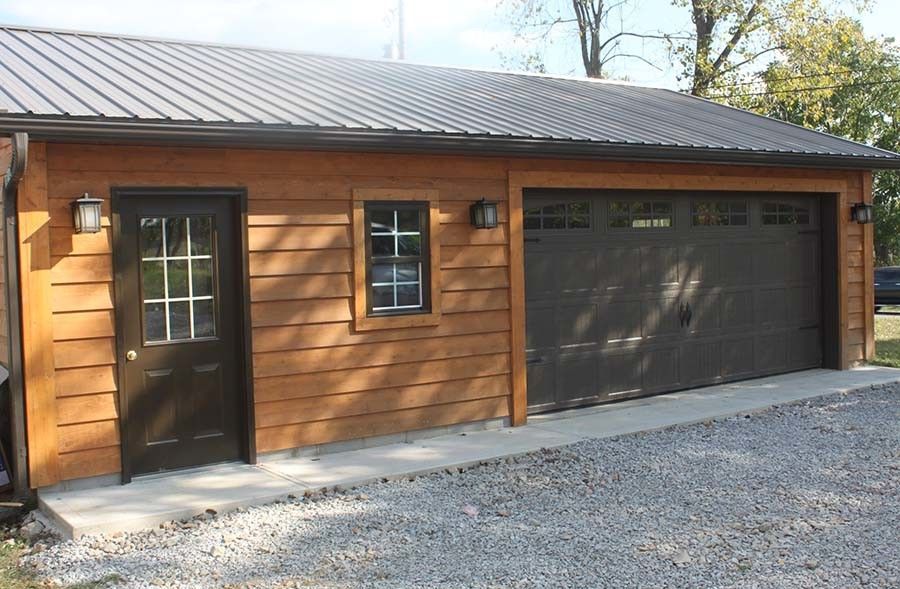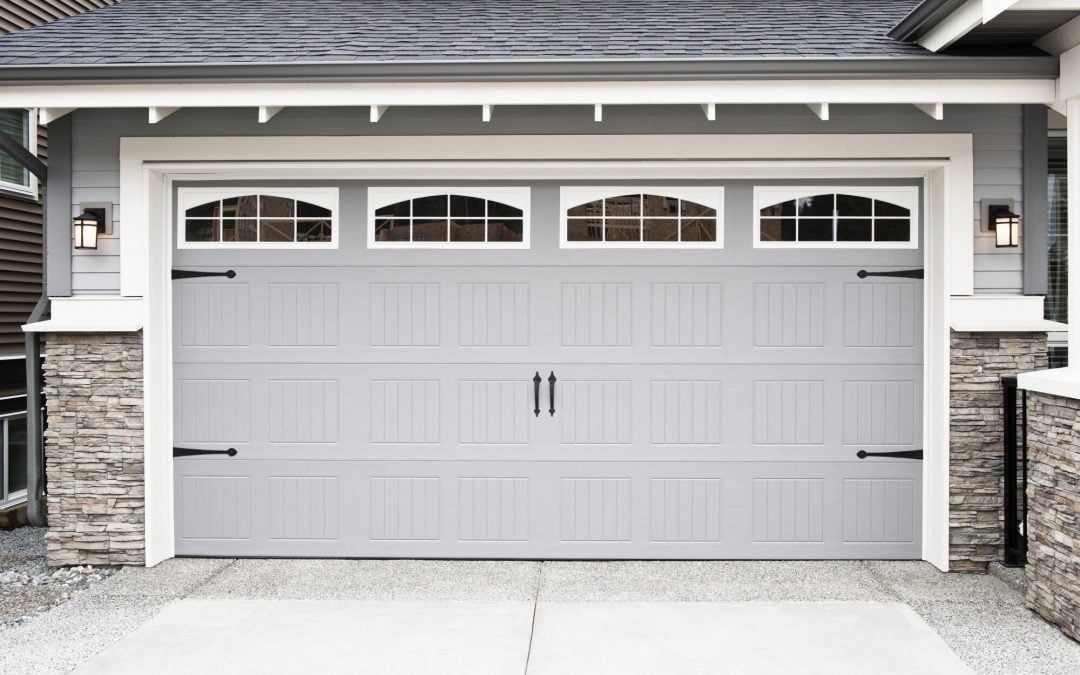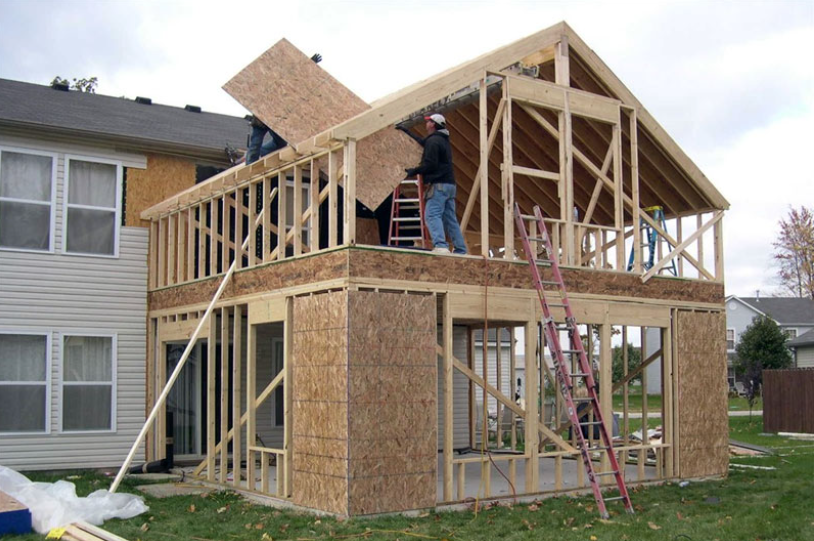What can't go in a dumpster rental in Rhode Island?
Understanding what items are prohibited in Rhode Island dumpster rentals is crucial for property owners planning construction projects, cleanouts, or renovations. Rhode Island has strict regulations governing waste disposal, with specific bans on hazardous materials, electronics, and certain household items that require special handling throughout Providence, Warwick, Newport, and all Rhode Island communities.
What Items Are Prohibited in Rhode Island Dumpster Rentals?
Items commonly prohibited in Rhode Island dumpsters include hazardous substances such as chemicals, asbestos, and paint, electronics (TVs, computers), tires, batteries, medical waste, flammable liquids and propane tanks, and appliances with Freon. Rhode Island instituted a landfill ban in place in 2009 for all televisions and computers, making proper disposal through approved channels mandatory.
Quick Reference: Prohibited Items List
Hazardous Materials:
- Paint, solvents, and chemicals
- Asbestos-containing materials
- Motor oil and automotive fluids
- Pesticides and herbicides
Electronics (E-Waste):
- Televisions and computer monitors
- Desktop computers and laptops
- Printers and electronics with circuit boards
- Cell phones and tablets
Appliances:
- Refrigerators and air conditioners (Freon appliances)
- Washers and dryers
- Water heaters
- Microwaves
Automotive Items:
- Tires and rims
- Car batteries
- Propane tanks
- Gas bottles and fuel containers
Rhode Island Electronic Waste (E-Waste) Regulations
Statewide Electronics Disposal Ban
Rhode Island has comprehensive e-waste regulations that affect dumpster rental usage:
Banned Electronics Since 2009:
- The law includes a ban on disposal of certain types of electronic waste at the Central Landfill effective 1/31/09
- Computers (CPUs), computer monitors (CRT and flat panel), combination units
- Similar video display devices with a screen greater than 9 inches diagonally which contains a circuit board
- Rhode Island's E-Waste & Disposal Ban Law (R.I.G.L. Chapter 23-24.10)
Covered Electronic Products:
- Desktop and laptop computers
- Computer monitors (both CRT and flat panel)
- Television sets of any size
- Printers with circuit boards
- Fax machines and scanners
Proper E-Waste Disposal Options
State-Approved Disposal Methods:
- Municipal collection events throughout Rhode Island
- Retailer take-back programs for electronics
- E-Waste Collections are open to any Rhode Island resident
- Professional e-waste recycling facilities
- Some items have a disposal fee charge, so please be prepared
Manufacturer Responsibilities:
- Electronics manufacturers must provide free take-back programs
- Retailers often accept trade-ins for new purchases
- Check manufacturer websites for mail-back programs
- Many offer prepaid shipping labels for returns
Hazardous Household Waste Restrictions
Rhode Island DEM Hazardous Waste Guidelines
The Rhode Island Department of Environmental Management (DEM) strictly regulates hazardous waste disposal:
Household Hazardous Waste Categories:
- Paints, stains, and solvents
- Cleaning products and chemicals
- Automotive fluids (oil, antifreeze, brake fluid)
- Pool chemicals and pesticides
- Batteries (except alkaline)
- Fluorescent bulbs and CFLs
Why These Items Are Prohibited:
- Environmental contamination risks
- Groundwater pollution potential
- Fire and explosion hazards during transport
- Toxic fumes released during compaction
Proper Hazardous Waste Disposal
Eco-Depot Collection Events:
- Regular household hazardous waste collection events
- Rechargeable batteries (Ni-Cd, Ni-MH, Ni-Zn, Li, Li-Ion, and Pb from toys, cell phones, laptops, and other electronics) should be brought to an Eco-Depot collection
- Free disposal for Rhode Island residents
- Professional handling and treatment
Retailer Programs:
- Home improvement stores accept paint and batteries
- Auto parts stores take motor oil and car batteries
- They only want the CFLs; regular-sized fluorescent light bulbs should be brought to an Eco-Depot collection event
- Electronics stores accept old devices for recycling
Medical Waste and Biohazardous Materials
Strict Medical Waste Prohibitions
Never Allowed in Dumpsters:
- Prescription medications and controlled substances
- Medical sharps (needles, syringes, lancets)
- Biological specimens and cultures
- Chemotherapy drugs and radioactive materials
- Medical devices with batteries or electronics
Proper Medical Waste Disposal:
- Hospital and pharmacy take-back programs
- DEA-approved medication disposal events
- Sharps disposal containers at pharmacies and medical facilities
- Professional medical waste disposal services
Animal Matter Restrictions:
- Dead animals and animal carcasses
- Animal waste and litter (large quantities)
- Veterinary waste and medications
- Requires special handling through animal control or veterinary facilities
Automotive and Industrial Items
Tire Disposal Regulations
Why Tires Are Prohibited:
- Create void spaces in landfills causing settling issues
- Fire hazards during storage and transport
- Environmental concerns with tire breakdown
- Special recycling processes required
Proper Tire Disposal Options:
- Auto repair shops and tire retailers
- Municipal collection events
- Tire recycling facilities
- Some locations charge disposal fees
Propane Tanks and Gas Containers
Safety Concerns:
- Explosion risks during transport and compaction
- Residual fuel creates fire hazards
- Pressurized containers can rupture
- Specialized handling and recycling required
Disposal Alternatives:
- Hardware stores and home centers
- Propane exchange locations
- Hazardous waste collection events
- Professional hazmat disposal services
Appliance Disposal Requirements
Freon-Containing Appliances
Prohibited Appliances:
- Refrigerators and freezers
- Air conditioning units
- Dehumidifiers
- Heat pumps
EPA Regulations:
- Freon removal required before disposal
- Certified technicians must handle refrigerant recovery
- Environmental protection regulations strictly enforced
- Substantial fines for improper disposal
Approved Disposal Methods:
- Appliance retailers often provide removal services
- Municipal bulk waste collection programs
- Professional appliance disposal services
- Scrap metal dealers with proper certification
Other Prohibited Appliances
Additional Restricted Items:
- Water heaters (gas and electric)
- Washers and dryers
- Dishwashers and garbage disposals
- Microwave ovens
Alternative Disposal Options:
- Utility company rebate programs
- Scrap metal recycling facilities
- Donation to charitable organizations (working units)
- Professional removal services
Construction and Demolition Restrictions
Asbestos-Containing Materials
Strict Asbestos Prohibitions:
- Asbestos tiles and insulation
- Siding and roofing materials containing asbestos
- Pipe insulation and ductwork
- Any materials suspected of containing asbestos
Legal Requirements:
- Professional asbestos testing required before demolition
- Certified asbestos removal contractors only
- Special containment and disposal procedures
- Substantial penalties for improper handling
Paint and Coating Materials
Liquid Paint Restrictions:
- Wet paint and stains prohibited in all forms
- Paint thinner and solvents
- Spray paint cans with contents
- Paint-soaked materials in large quantities
Proper Paint Disposal:
- Dry out latex paint before disposal
- Oil-based paints to hazardous waste collection
- Paint hardener products available at retailers
- Donate usable paint to community organizations
Liquids and Containers
Liquid Waste Prohibitions
All Liquids Banned:
- Water, beverages, and food liquids
- Cleaning products and household chemicals
- Motor oil and automotive fluids
- Pool chemicals and lawn care products
Why Liquids Are Prohibited:
- Leakage during transport creates safety hazards
- Environmental contamination risks
- Equipment damage to collection trucks
- Regulatory compliance issues
Container Requirements
Acceptable Container Disposal:
- Empty containers only (no residual contents)
- Aerosol cans completely empty
- Plastic containers rinsed clean
- Metal containers without hazardous residue
Special Container Handling:
- Propane tanks require professional emptying
- Chemical containers need special disposal
- Large containers may require cutting or crushing
- Some containers have deposit values for recycling
Regional Variations and Local Regulations
Municipal Specific Requirements
Providence Area:
- Urban density affects collection logistics
- Historic district considerations for lead paint
- Noise ordinances during dumpster placement
- Permit requirements for large containers
Coastal Communities (Newport, Narragansett):
- Environmental sensitivity near waterways
- Stricter regulations on chemical disposal
- Historic preservation considerations
- Tourism season access restrictions
Suburban Areas (Warwick, Cranston):
- Residential neighborhood regulations
- HOA restrictions on dumpster placement
- School zone considerations during placement
- Seasonal access limitations
Industry-Specific Restrictions
Construction Projects:
- Asbestos and lead paint testing requirements
- Concrete and masonry weight limitations
- Permit requirements for large volumes
- Specialized disposal for certain materials
Commercial Renovations:
- Business license requirements for waste generation
- OSHA compliance for workplace safety
- Environmental permits for certain materials
- Record-keeping requirements for hazardous materials
Penalties and Consequences for Violations
Rhode Island State Penalties
Regulatory Violations:
- Fines ranging from $500 to $25,000 per violation
- Environmental cleanup costs responsibility
- Permit suspension or revocation possible
- Criminal charges for serious violations
Dumpster Company Consequences:
- Additional fees for prohibited item removal
- Contract termination for repeat violations
- Cleanup costs passed to customer
- Potential legal liability for improper disposal
Environmental Impact Concerns
Long-Term Consequences:
- Groundwater contamination from improper disposal
- Soil pollution affecting local ecosystems
- Air quality impacts from burning or decomposition
- Wildlife habitat damage from toxic materials
Community Health Risks:
- Exposure to hazardous chemicals
- Fire and explosion risks from improper materials
- Contamination of drinking water supplies
- Public health emergencies from toxic releases
Proper Alternatives for Prohibited Items
State and Municipal Programs
Rhode Island Resource Recovery Corporation (RIRRC):
- Household hazardous waste collection events
- Electronics recycling programs
- Composting and organic waste programs
- Educational resources for proper disposal
Municipal Collection Programs:
- Bulk waste pickup schedules
- Special collection events for hazardous materials
- Electronics and appliance collection days
- Tire and automotive waste collection
Private Disposal Services
Specialized Waste Companies:
- Hazardous waste removal services
- Medical waste disposal companies
- Electronics recycling specialists
- Construction and demolition debris handlers
Retailer Take-Back Programs:
- Electronics manufacturers and retailers
- Paint stores and home improvement centers
- Automotive parts stores and service centers
- Appliance retailers with delivery services
Planning Your Rhode Island Dumpster Rental
Pre-Rental Preparation
Inventory Assessment:
- Identify all materials requiring disposal
- Separate prohibited items before delivery
- Research alternative disposal methods
- Budget for specialized disposal costs
Communication with Rental Company:
- Discuss specific project materials
- Clarify prohibited items and restrictions
- Understand additional fees and charges
- Confirm pickup and replacement schedules
Best Practices for Compliance
Documentation and Records:
- Photograph materials before disposal
- Keep receipts for specialized disposal services
- Document compliance with environmental regulations
- Maintain contractor licenses and certifications
Safety Considerations:
- Proper handling of heavy materials
- Personal protective equipment during loading
- Safe placement away from utilities and traffic
- Emergency contact information readily available
Cost Implications of Prohibited Items
Additional Disposal Costs
Specialized Disposal Fees:
- Hazardous waste disposal: $50-200 per item
- Electronics recycling: $10-50 per device
- Appliance disposal: $25-100 per appliance
- Asbestos removal: $500-2,000 per project
Penalty Costs:
- Contaminated load fees: $200-500 per occurrence
- Additional pickup charges: $100-300 per trip
- Environmental cleanup costs: $1,000-10,000+
- Legal fees and fines: Variable, potentially substantial
Budget Planning
Total Project Cost Considerations:
- Dumpster rental base fees
- Specialized disposal service costs
- Additional pickup and handling charges
- Permit and compliance costs
Cost-Saving Strategies:
- Plan disposal methods before rental
- Combine specialized disposal trips
- Use manufacturer take-back programs
- Coordinate with neighbors for shared services
Future Trends and Regulatory Changes
Evolving Environmental Standards
Stricter Regulations Expected:
- Expanded e-waste coverage for more devices
- Additional chemical restrictions likely
- Enhanced enforcement and monitoring
- Increased penalties for violations
Technology Solutions:
- Digital tracking of waste streams
- Enhanced recycling technologies
- Automated sorting and identification systems
- Blockchain verification for compliance
Sustainability Initiatives
Circular Economy Focus:
- Emphasis on reuse and refurbishment
- Extended producer responsibility programs
- Enhanced recycling infrastructure development
- Consumer education and awareness programs
Need professional waste management and dumpster rental services that ensure full compliance with Rhode Island regulations?
Rockhouse Construction provides comprehensive dumpster rental and waste disposal coordination throughout Providence, Warwick, Newport, and surrounding communities. Our experienced team understands all Rhode Island waste disposal regulations and helps arrange proper disposal for prohibited items through approved channels. From construction debris and renovation waste to coordination with specialized disposal services, we ensure your project remains compliant while providing efficient, reliable service.
Contact us today to discuss your waste management needs and ensure your project follows all Rhode Island environmental regulations from start to finish.
